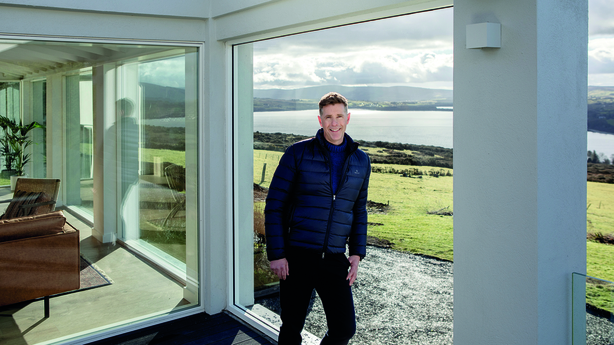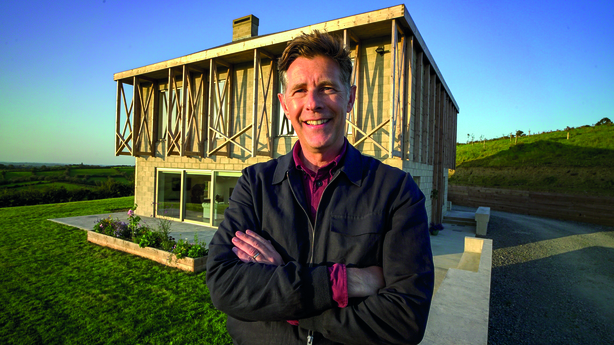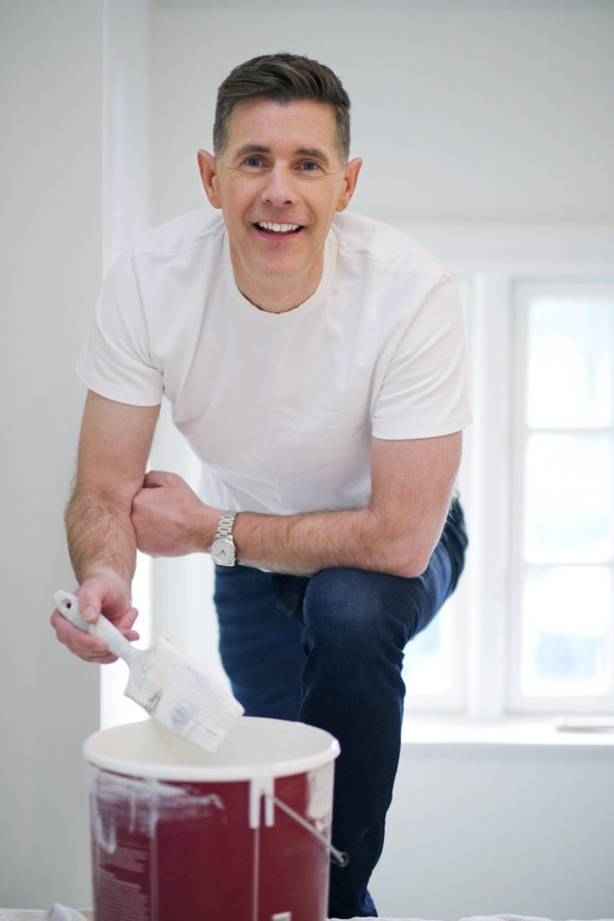Despite being one of television's most recognisable faces and national treasure, Dermot Bannon doesn't take it for granted. If you ask him honestly, he'll tell you, "I just feel I'm on my last chance every year".
After 15 years of Room to Improve, he says: "I feel lucky. I love making it."
"Everybody says to me do you get tired of it, is it time to do something different, but if I gave up Room to Improve, I'm going into the office to do the exact same thing. I design houses for a living and I will do until I can't hold a pencil anymore."

That said, the pandemic played a huge role in his love of the show: "There was times when I was really tired of it and it was going on every year, but I think it was lockdown and [thinking] maybe this mightn't happen, and it might get shelved for a year, it kind of put the panic [on me]. I'm not ready to give this up.
He adds, laughing: "That's the kiss of death now, for me to say I'd love it to go on forever means that it won't!"
Room to Improve is set to return to our screens next year, as part of RTÉ new season line up, and will offer a picture of a housing market in various forms of crisis. Our "national obsession with homes" hasn't gone away, Bannon says, but with Covid, Brexit and more hindering construction, the next season of the hit show is bound to be eye-opening.
"It's a challenge, you just rise to it", he says. "There's two ways to skin a cat, there's the more cost effective way, there's different materials we can use. Can we use local materials, can we use stuff that doesn't have to come across from the other side of the world?"
This is a different Dermot than before, and he knows it. "If somebody couldn't afford to put in the best marble, I might have thrown my toys out of the pram and said, but you need the best marble in here!" he laughs. "But now it's what can you afford?"
Naturally, there will be scraps and butting heads, but Bannon says: "I'm dealing with people's homes, I'm dealing with their life's savings and when things do go over budget really it's that they've dictated, but they don't see it.
"Over the years I've learned to get over it. They do sometimes lose it with me and some of the stuff can never go to air! At the beginning, it's a bit like they've been chosen for X Factor, they can't believe they're going to be on Room to Improve, and three weeks into it they're like, so this is just like a normal job?"
It wouldn't be Room to Improve without some strong personalities, and Bannon says there's already one standout.
"Generally a lot of the females have become characters, but this is a male. We have one very prominent character this year, I'm not allowed to say anymore", he teases, before saying more: "It'll probably be episode number one."
With the new series essentially wrapped up and new projects due to be sourced, it's likely that the future series of the show will represent the ongoing cost-of-living crisis and more.

"That's part of what I love, that we do it every year, year after year. Every year the circumstances change. I'm acutely aware of what's going on in the background, the rental crisis, the housing crisis, the huge need for housing. But with Room to Improve it's financial, it's the cost of everything.
"That just adds to it. If they're only getting half the space that they would have got in the past, can we make spaces more flexible? Can we turn rooms into dual functions? Can we think outside the box?
"What I'm dealing with is the reality of what we have right now, and every time we start off I'm only dealing with what's put in front of me, and that could be the economy. It can be stuff taking 25 weeks to come from China, windows not being available."
This is just one of many storms Bannon has weathered as the host of Room to Improve, so he's not daunted by the challenge.

"The first episode of Room to Improve was boom time, 2008, into a huge, deep recession, into a lack of builders, into Brexit. So Room to Improve, over the years, has navigated whatever is going on and reflects then back."
Just off the back of a brutal heatwave that spells trouble for years ahead when it comes to the climate, Bannon is keenly aware of the challenges coming our way.
"We're way behind when it comes to making our houses more sustainable. We've become a little bit obsessed with the amount of space we have and having numbers of rooms and having quantity rather than quality. The next big challenge ... is to make things more sustainable."
This could include sourcing materials locally and stripping away excess rooms that we don't need, he adds.
As for the housing crisis, Bannon says he feels it too as a parent. "I've got young kids who are coming to that age and I have no idea how they'll ever get onto a property ladder.
First and foremost, however, "Room to Improve is a design show, there's takeouts from it", he says.
"We're going to distil things down to what we need. I think it'll be seen as the ethically right thing to do, not building a 5,000 sq ft house if you don't need it. Our days of wasting are over."
